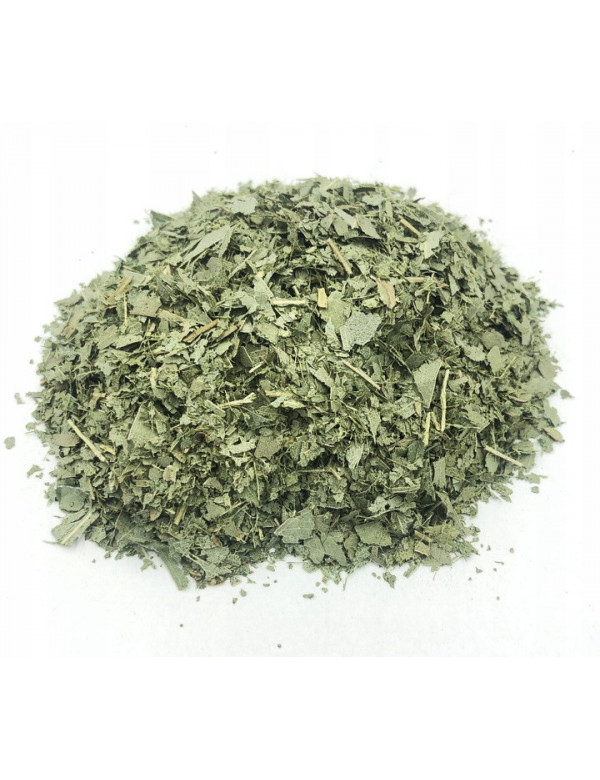



If you are drinking the tea to soothe a sore throat, the honey may help to ease symptoms as well. You may also choose to blend eucalyptus leaf tea with peppermint or camomile to increase the soothing properties of the tea.
In addition to treatment for the common cold, people use eucalyptus to gain a variety of other health benefits including: treatment of asthma, bronchitis, diabetes, to reduce dental plaque and bad breath.
Also it is commonly used to eliminate head lice, avoid insect bites, get rid of headaches and treat liver and gallbladder problems.
How to prepare:
quantity: 1 teaspoon per cup
temperature: 90 - 95 C
brewing time: 10 minutes
Multiple infusion: no
Food pairing: chocolate cake
Tip: breathe in eucalyptus vapors while the tea is steeping if you have a cold or flu

Security policy

Delivery policy
Eucalyptus is high in flavonoids, a group of naturally occurring antioxidants that are found in many fruits, vegetables, and herbs. A 2019 study found that consuming a flavonoid-rich diet may protect against chronic illnesses such as cancer, dementia, and heart disease, though more research is needed to understand the scope of the claim, as well as the correlation between drinking eucalyptus tea and fighting chronic illness.
Even if the studies that draw a direct correlation between drinking eucalyptus and chronic illness are not extended, there are a lot of studies that do so in relation to the flavonoids that are the antioxidants found in eucalyptur.
While there’s no scientific proof that drinking eucalyptus tea will prevent colds and flus altogether, there’s enough evidence to show that it certainly is beneficial for the immune system. Fear not: In the unfortunate event that you’re already fighting off a cold, drinking eucalyptus tea will still help reduce congestion.
There are studies that show that eucalyptus leaves tea has antimicrobial effect against many types of bacteria.
“Application by either vapor inhalation or oral route provides benefit for both purulent and non-purulent respiratory problems, such as bronchitis, asthma, and chronic obstructive pulmonary disease (COPD),” according to studies.